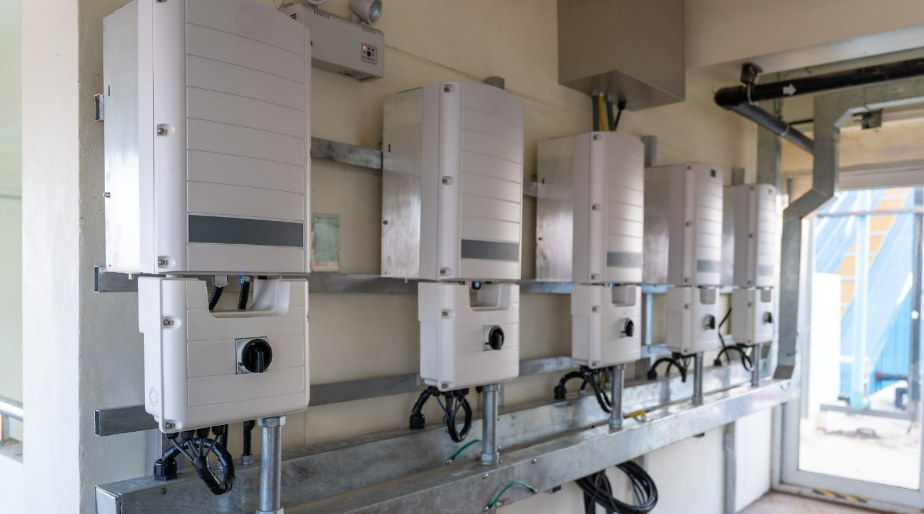What to Consider When Selecting a Solar Inverter in NZ
New Zealand has some of the best sunshine hours in the world, making solar power an appealing addition to Kiwi homes. However, between the panels shining on your roof and the electricity feeding your appliances sits a vital piece: the solar inverter.
This unsung hero silently converts the DC (direct current) electricity your solar panels produce into usable AC (alternating current) for your home. Choosing a suitable inverter is crucial for maximising solar energy production and ensuring a smooth-running system. Below, we provide a comprehensive guide to help you find a solar inverter in NZ.
Understanding Inverter Basics
Before diving into specifics, let’s establish a foundational understanding of inverters. As mentioned, inverters transform DC electricity from solar panels into AC electricity compatible with household appliances.
This conversion process isn’t flawless, and there’s a slight efficiency loss. Higher quality inverters have better efficiency, maximising your power output. Here are the types of solar inverters to consider:
String Inverters
The most common type is string inverters, which connect all your solar panels in series to a single unit. This type is a cost-effective option. However, if a panel malfunctions, the entire string can be affected.
Microinverters
Each solar panel has its dedicated microinverter. This property offers several advantages: maximised power production even with panel shading, improved system monitoring, and improved safety due to the modular design. However, microinverters come at a higher initial cost.
Factors to Consider When Choosing a Solar Inverter in NZ
Let’s delve into the factors to consider when finding a solar inverter for your Kiwi home:
System Size and Power Output
The inverter’s capacity (measured in kilowatts – kW) must match the total power output of your solar panels. Undersizing the inverter limits your system’s potential, whereas oversizing can lead to inefficiency. Consult a qualified solar installer to determine the optimal size based on your energy needs and roof space.
Inverter Efficiency
Efficiency is crucial when harnessing solar power. Look for inverters with a Maximum Power Point Tracking (MPPT) rating exceeding 95%. MPPT ensures the inverter operates at the optimal point for maximum power generation from your solar panels.
String vs. Microinverters
Consider your budget, roof layout (potential shading issues), and desired level of system monitoring when making this choice. String inverters are generally more affordable, while microinverters offer better performance under shade.
Warranty
A robust warranty provides peace of mind. Look for inverters with a minimum warranty of 10 years, ideally covering manufacturing defects and performance.
<h3>Monitoring and Data Acquisition</h3>
Monitoring your system’s performance allows you to optimise energy use and identify potential issues. Choose an inverter with built-in monitoring capabilities or compatibility with data acquisition systems.
Safety Features
Safety is paramount. Ensure the inverter complies with New Zealand safety standards (AS/NZS 4417.2) and features essential safety functions like overcurrent protection, grounding, and arc fault detection.
Reputation and After-Sales Support
Research the brand’s reputation for quality and customer service before investing in an inverter. Ensure the supplier offers reliable after-sales support for troubleshooting and potential repairs.
Future Expansion
If you plan to expand your solar system, consider an inverter with some headroom for additional solar panels. However, ensure any oversizing stays within the manufacturer’s recommendations to maintain warranty validity.
Additional Considerations
Here are some factors specific to the New Zealand market:
Climate
New Zealand experiences a temperate climate with moderate temperatures. Standard inverters typically suffice, but consider consulting your installer about extreme weather conditions in your region.
Grid Connection Requirements
Ensure your chosen inverter meets the grid connection requirements set by your electricity retailer. In New Zealand, inverters must comply with the EECA (Electricity Efficiency Conservation Authority) standards for grid connection.
Rebates and Incentives
The New Zealand government offers rebates and financial incentives for installing solar power systems. Look into available programs to see if specific inverter models qualify for additional benefits.
Finding the Perfect Match: Consulting with a Qualified Solar Installer
With many solar inverter options available, navigating the market can be overwhelming. Here’s where a qualified solar installer becomes your invaluable partner. Here are some tips for finding the perfect installer:
Gather Information
Before meeting with installers, research your electricity usage and roof space to understand your solar power needs.
Ask Questions<
Don’t hesitate to ask detailed questions about inverter options, including efficiency ratings, warranties, monitoring capabilities, and compatibility with your desired system setup.
Request Multiple Quotes
Obtain quotes from several reputable solar installation companies. Compare the proposed inverter models, pricing, and overall system design to find the best fit for your needs and budget.
Choosing the best solar inverter is crucial to a sustainable and energy-independent future for your New Zealand home. You can make an informed decision by understanding your needs, considering the factors above, and consulting with qualified solar professionals. The right inverter can maximise your solar power generation, reduce your reliance on the grid, and contribute to a greener tomorrow.

